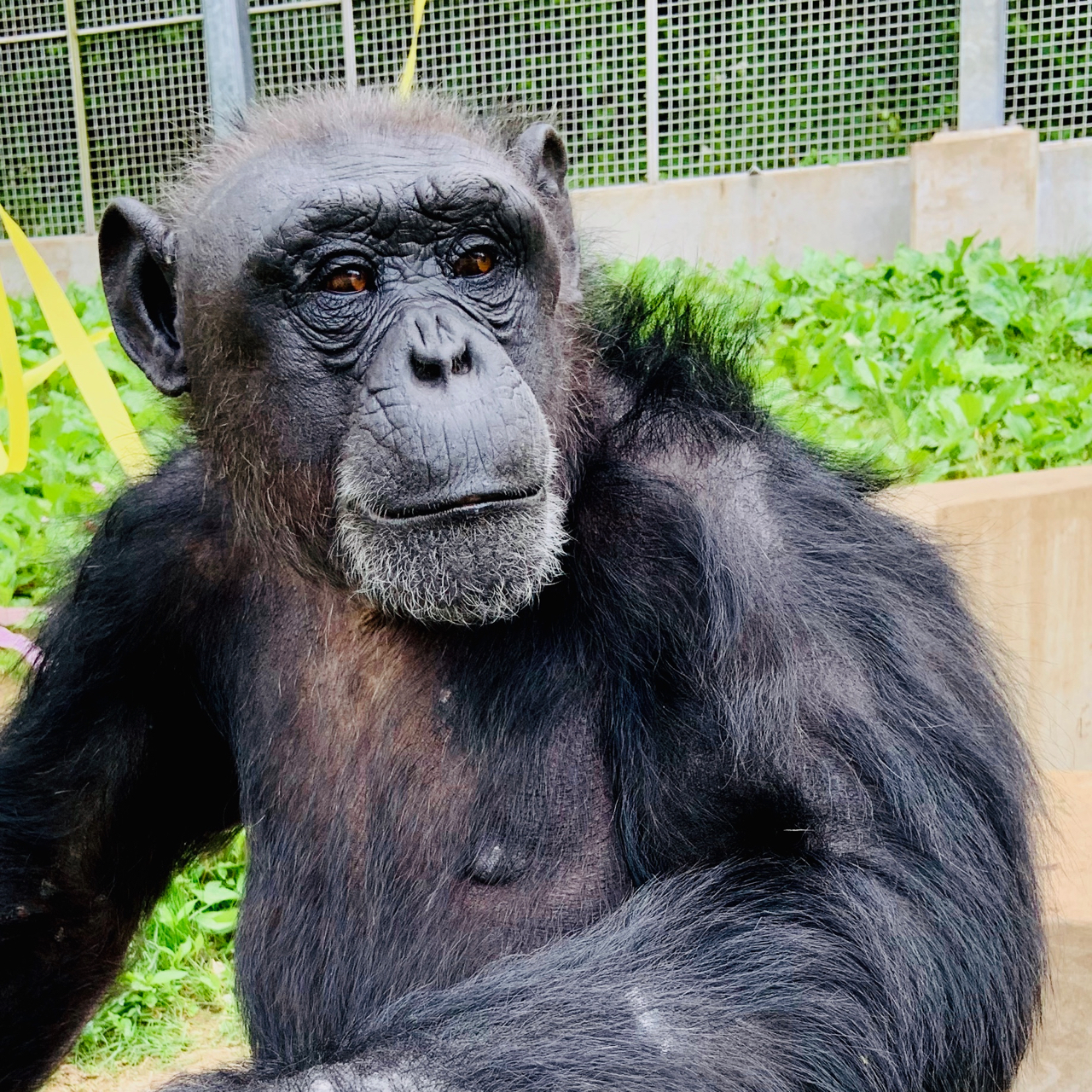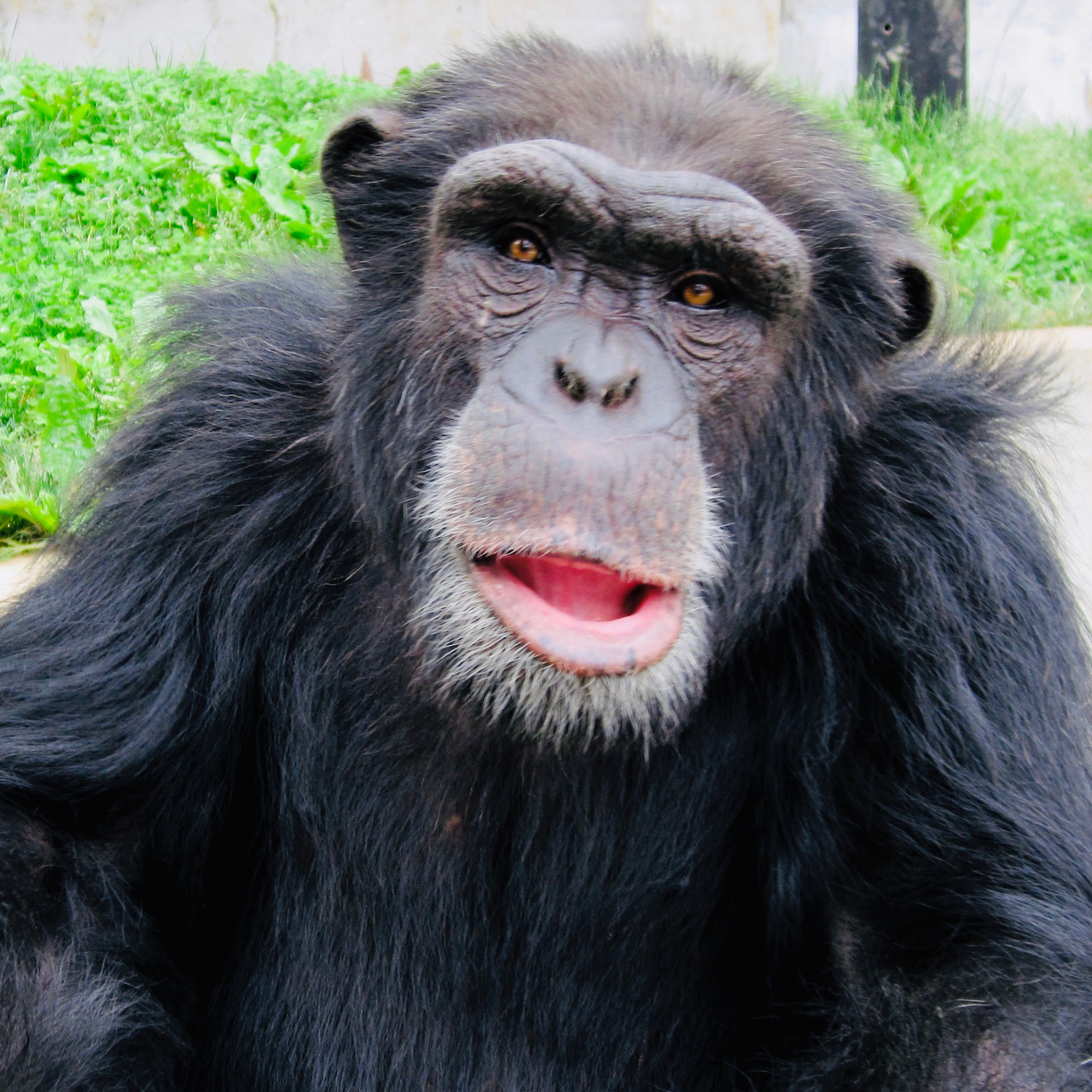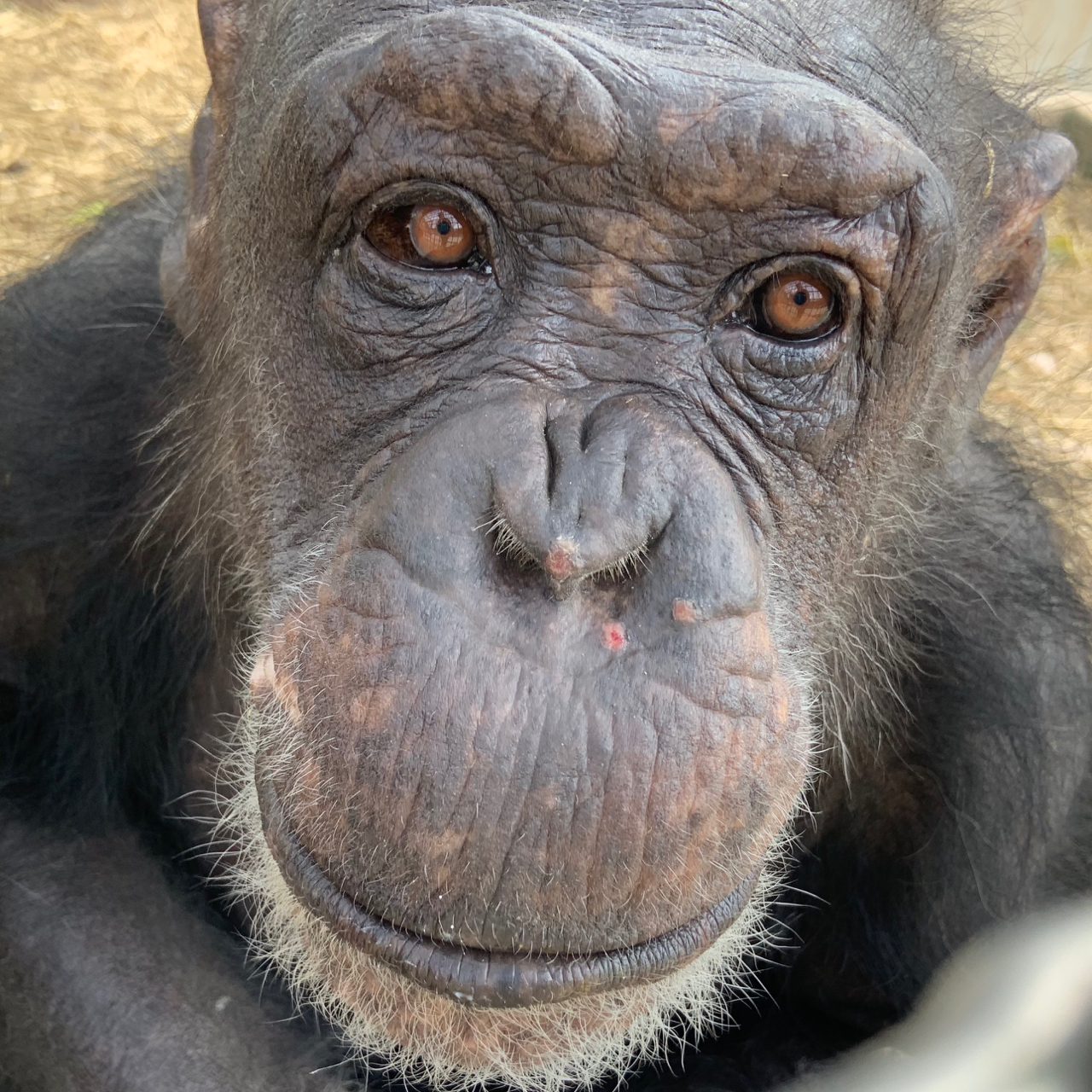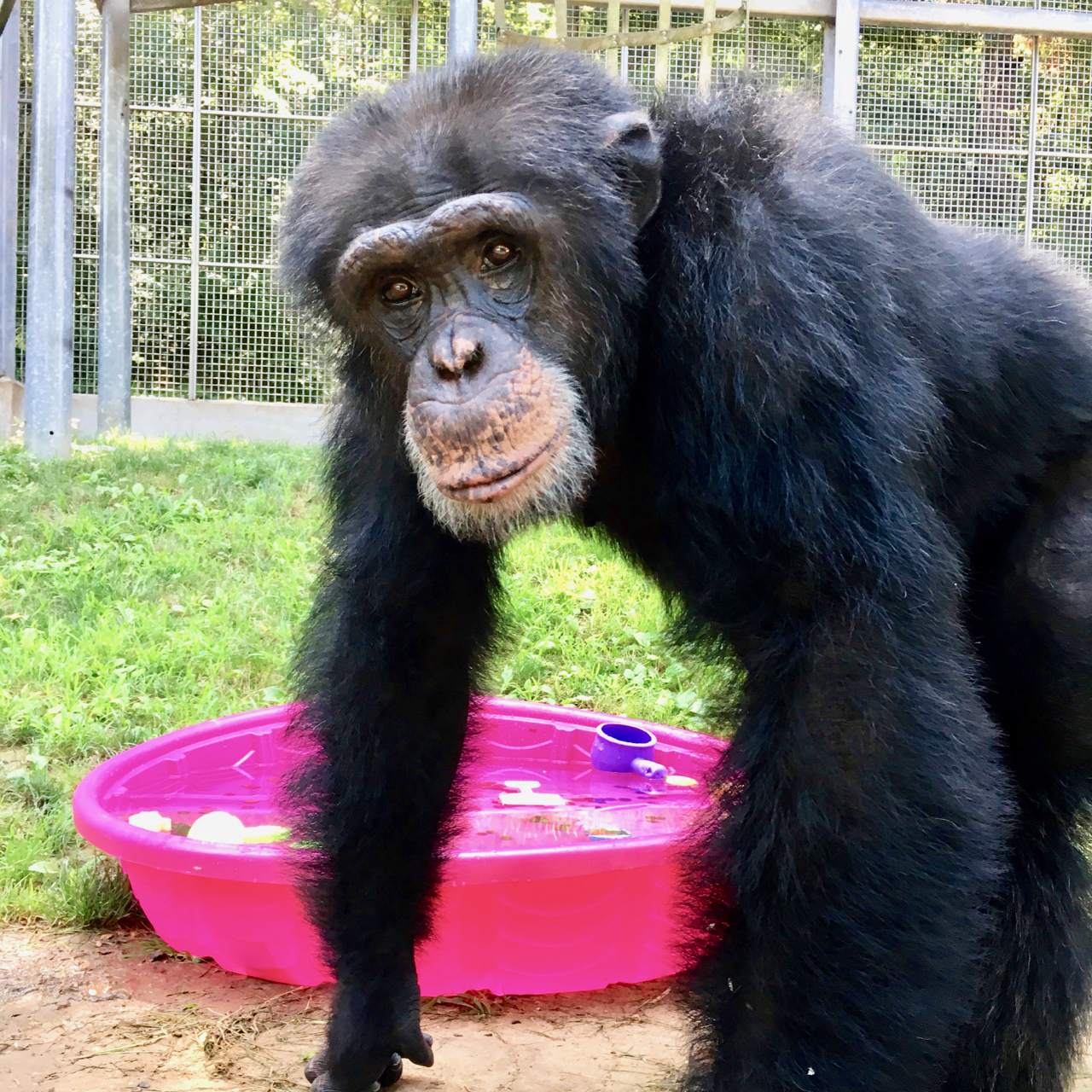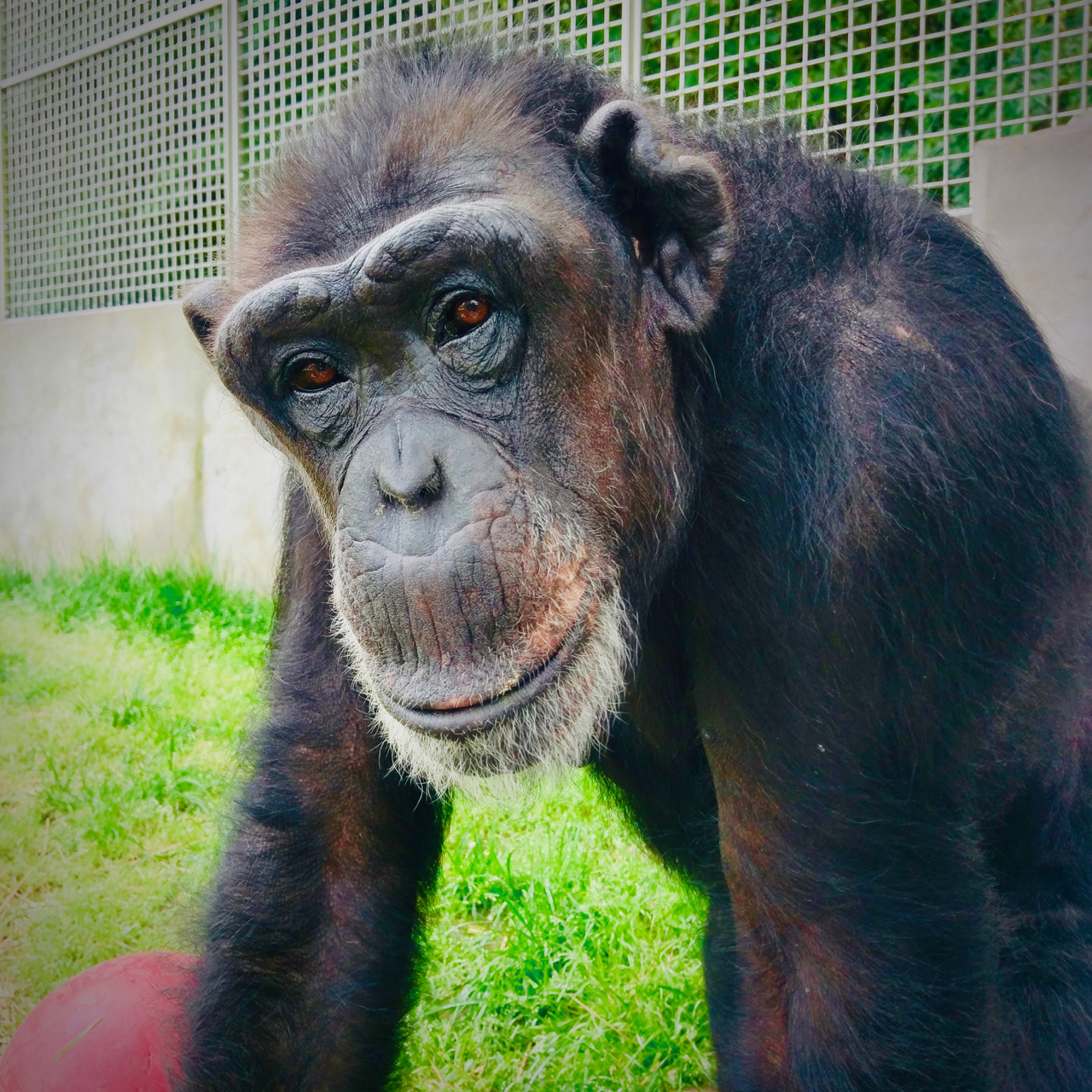Chimpanzees
The Chimps
The Primate Rescue Center is home to two groups of rescued chimpanzees: five remaining chimps who arrived in 1996 from New York University’s Laboratory for Experimental Medicine and Surgery in Primates (LEMSIP), which was preparing to shut down (two of the original group have since passed away), and three elderly survivors of the “Dahlonega 5,” who were rescued in 1998 from a private situation in Georgia in which they had spent decades in squalid conditions (two of the original group have since passed away).
One of the PRC’s proudest accomplishments is the unification of these two groups, in the summer of 2000. Before the introductions, the adults typically spent their days lazily grooming and napping, while the LEMSIP chimps displayed youthful energy and rambunctiousness. But as the two groups were united into one cohesive unit of eleven, more resembling the social dynamic of a natural troop in the wild, the once-sedentary adults began running, playing, and reprimanding the youngsters for inappropriate behavior. And those youngsters benefited, as well, as the integration enabled more complex interactions and social opportunities.
The LEMSIP chimps are now young adults, and we watch with endless fascination as the males jockey for position in the group’s hierarchy, some of them clearly angling to one day try to claim the alpha spot. Because a chimpanzee may live 50 or more years in the wild, and even longer in captivity, whoever does ascend to that role may have a long reign as leader of the pack.
Ike and Noelle Grooming Session
A sweet grooming session between longtime friends, Noelle and Ike.
PRC Memorial Garden
We tidied up and refreshed our sanctuary memorial garden by adding some hostas, river rock and a bench...
Jenny’s Pink Pony Club Birthday Party
This month we threw a party that would make any pop princess proud — Jenny turned 30, and we celebrated with a Pink Pony Club bash that was bursting with color, fringe, snacks and goofy good vibes!
Video – Chimp Easter Party 2025
The chimps enjoyed a cute little Easter party in their outdoor enclosure.
Video – Moments with Zulu – Spring 2025
A few sweet moments of Zulu in the outdoor enclosure.
